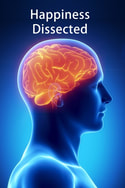Chapter 11
Other Types of Love
Only three people feel love. Mothers love children for 33 months. Grandmothers love grandchildren for 33 months. Men love women for 42 months.
Nobody else feels love. Women do not love men. Men do not love children. Children do not love parents, siblings or grandparents. Grandfathers do not love grandchildren. Friends do not love friends. People do not love pets.
Nobody else helps their genes by harming themselves to make another person happy, which is what love encourages you to do. Harming yourself to make another person happy only helps your genes if:
· you are a woman and the other person is your child or your grandchild
· you are a man and the other person is your child’s mother
Other people feel infatuation, affection or cute. These positive effects are mistakenly believed to be love.
Women feel infatuation. Infatuation is triggered when a woman concludes that she triggers a man’s visual/audible pleasure.
Everyone feels affection. Affection is triggered by the sight or sound of familiar people. Unlike love and infatuation, affection does not have a limited duration. Affection usually grows stronger with time.
Affection is what most people mean when they say they love somebody. Spouses feel affection after the end of monogynic love and infatuation. Parents feel affection for children. Children feel affection for siblings, parents and grandparents. Grandparents feel affection for grandchildren. Friends feel affection for friends. People feel affection for pets.
Everyone older than 33 months feels cute. Cute is triggered by the sight of infants.
Nobody else feels love. Women do not love men. Men do not love children. Children do not love parents, siblings or grandparents. Grandfathers do not love grandchildren. Friends do not love friends. People do not love pets.
Nobody else helps their genes by harming themselves to make another person happy, which is what love encourages you to do. Harming yourself to make another person happy only helps your genes if:
· you are a woman and the other person is your child or your grandchild
· you are a man and the other person is your child’s mother
Other people feel infatuation, affection or cute. These positive effects are mistakenly believed to be love.
Women feel infatuation. Infatuation is triggered when a woman concludes that she triggers a man’s visual/audible pleasure.
Everyone feels affection. Affection is triggered by the sight or sound of familiar people. Unlike love and infatuation, affection does not have a limited duration. Affection usually grows stronger with time.
Affection is what most people mean when they say they love somebody. Spouses feel affection after the end of monogynic love and infatuation. Parents feel affection for children. Children feel affection for siblings, parents and grandparents. Grandparents feel affection for grandchildren. Friends feel affection for friends. People feel affection for pets.
Everyone older than 33 months feels cute. Cute is triggered by the sight of infants.
Happiness Dissected is a more practical version of The Origin of Emotions.

